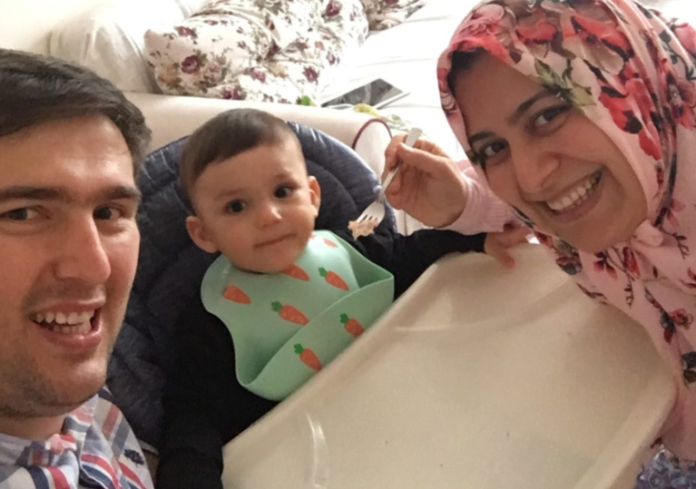Three pregnant women were arrested last week in Ankara and Manisa on terrorism-related charges on the grounds that they were members of the faith-based Gülen movement, a dissident group that has long been relentlessly targeted by the government of President Recep Tayyip Erdoğan.
Hatice Aydın, 11 weeks pregnant, was detained last week and formally arrested. She was a science teacher in a private school shut down by an emergency decree-law promulgated during a two-year state of emergency declared after a failed coup in 2016. Her husband, Fatih Aydın, was also a teacher at the same school. Both were unemployed after their school was closed down.
Fatih Aydın said his wife was taking medication due to the risk of miscarriage. “The judge said my wife had been sought by the police for the last two years. But we received no official notice from the authorities. Also, our address is registered in the official records. We run a small market registered under my wife’s name.” The couple had moved to the city of Manisa and started a new business after losing their jobs in the aftermath of the July 15, 2016 coup attempt.
Two other pregnant women, Sehat Sarı and Ümmiye Kara, were arrested in Ankara. Sarı is five months pregnant. She had a miscarriage in the past and is still at risk of suffering another one. Because her husband was arrested as well, their 1-year-old son Mustafa Vedat will live with his grandmother. They were both teachers in the past.

Kara is seven months pregnant. Just as in Sarı’s case, her husband has also been arrested. The couple has a daughter and a son who are now separated from their parents.
Even if the three pregnant women are convicted, their sentences theoretically must be postponed under the Law on the Execution of Sentences and Security Measures, which stipulates that “execution of the prison sentence is delayed for women who are pregnant or have given birth within the last year and a half.” It was amended in April as part of the early release bill aimed at reducing the inmate population in the country’s overcrowded prisons in the face of the COVID-19 crisis.
Commenting on the arrests to the Kronos news website Ömer Faruk Gergerlioğlu, a deputy from the pro-Kurdish Peoples’ Democratic Party (HDP) and a prominent human rights defender, said judges are turning a blind eye to the law and continue to arrest pregnant women and women with newborns. “The extension of the delayed sentence period from six months to one-and-a-half years for women who have given birth is the only welcome aspect of the early release bill. … The judges are openly defying the regulations. We will take this matter to the Board of Judges and Prosecutors [HSK].”
Turkish President Erdoğan has been targeting members of the Gülen movement since the revelation of two corruption probes in 2013 -– the so-called December 17-25 corruption operations that implicated then-Prime Minister Erdoğan and his close associates and which he accuses the movement of masterminding, an allegation categorically denied by the movement.
Following the corruption investigations, the Erdoğan government scapegoated the movement for virtually all the country’s ills, a process that culminated in his designation of the movement as a terrorist organization and the seizure of all Gülen-inspired media outlets.
After the failed coup in July 2016, for which President Erdoğan once again blamed the movement, he initiated a relentless witch-hunt against persons and institutions perceived as Gülenist. Putting pregnant women behind bars has been a practice of Turkish authorities since then.
















[…] pregnant women as it intensifies a crackdown on dissidents. Hatice Aydın, 11 weeks pregnant, was arrested in June. According to her husband, she was taking medication due to the risk of […]